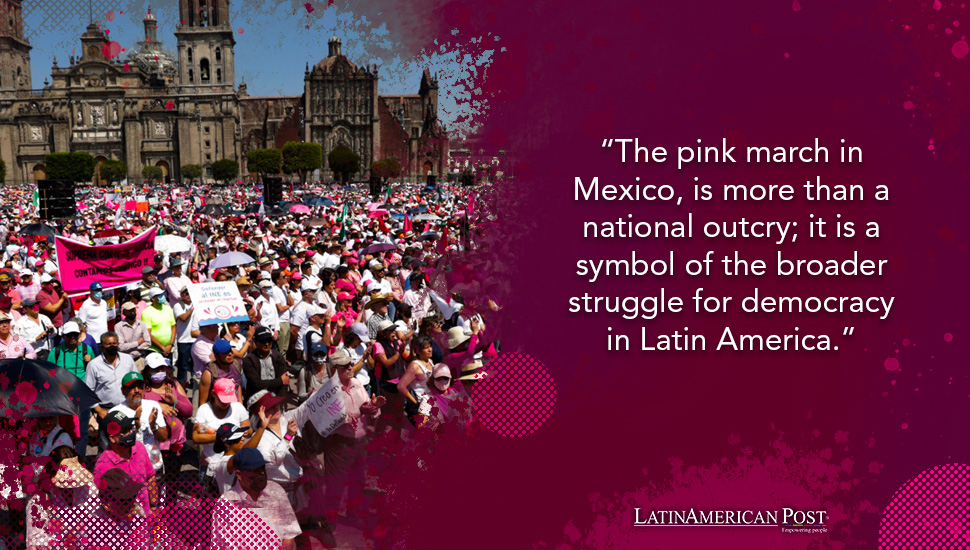Mexico’s Pink March Signals a Regional Call for Democratic Transparency

Amid a sea of pink, tens of thousands marched for democracy in Mexico, demanding transparency and fairness ahead of the June elections, echoing a vital call for democratic integrity that resonates deeply across Latin America’s troubled political landscape.
Voices Rise in Mexico and Beyond
In an impressive display of civic engagement, tens of thousands of demonstrators, adorned in pink, took to the streets in Mexico and beyond, voicing their demand for a democracy that is both transparent and inclusive. This “march for democracy” comes at a critical juncture for Mexico as the country prepares for its June 2 elections amidst growing concerns over the integrity of its democratic institutions. The march, a straightforward rebuke of the current administration and its perceived continuation candidate, Claudia Sheinbaum, underscores a broader regional struggle for democratic norms that Latin America knows all too well.
The demonstrators’ concerns are not unfounded. The current administration, led by Andrés Manuel López Obrador, has introduced measures that many fear could undermine the very foundation of Mexico’s democracy. The slashing of funding for the National Electoral Institute and the weakening of campaign spending oversight represent not just policy shifts but potential threats to the democratic process itself. These actions, coupled with attacks on the judiciary and the press, paint a troubling picture of a democracy at risk.
Mexico’s plight is not unique in the region. Across Latin America, democracies are grappling with similar challenges: corruption, weakened institutions, and leaders who, once in power, seek to consolidate their hold by eroding democratic checks and balances. From Nicaragua’s Ortega silencing opposition voices to Venezuela’s Maduro undermining the electoral process, the pattern is disturbingly familiar. These actions not only threaten the democratic fabric of individual nations but also set dangerous precedents for the region as a whole.
The Symbolism of the Pink March: A Call for Regional Democracy
The pink march in Mexico, therefore, is more than a national outcry; it is a symbol of the broader struggle for democracy in Latin America. It is a call to not only safeguard electoral integrity but to ensure that governments remain transparent, accountable, and, most importantly, servant to their people. The demonstrators’ message is clear: democracy must be protected at all costs, for without it, the fundamental rights and freedoms of the people are at risk.
It is crucial, then, that these voices are heard and their demands for a more transparent democracy are met. Limiting barriers to political participation, ensuring the independence of electoral and judicial institutions, and protecting the freedom of the press are essential steps toward achieving this goal. Moreover, the international community must stand in solidarity with those fighting for democracy in Mexico and across Latin America, offering support and condemnation in equal measure to those who seek to undermine it.
The pink march represents a beacon of hope and a testament to the power of collective action. It is a reminder that, despite the challenges, the spirit of democracy remains alive and well in the hearts of many. As Mexico moves toward its elections and as Latin America continues to navigate its complex political landscape, the message from the marchers is a powerful one: democracy, with all its imperfections, is worth fighting for.
The stakes are high, not just for Mexico but for the entire region. A slide back into the shadows of authoritarianism and corruption is a price too steep to pay. Therefore, the call for democracy, transparency, and fairness must be heeded. The pink march is not just a moment in time but a movement, one that carries the hopes and aspirations of millions who yearn for a future where their voices are heard, their rights are respected, and their governments are genuinely of the people, by the people, for the people.





